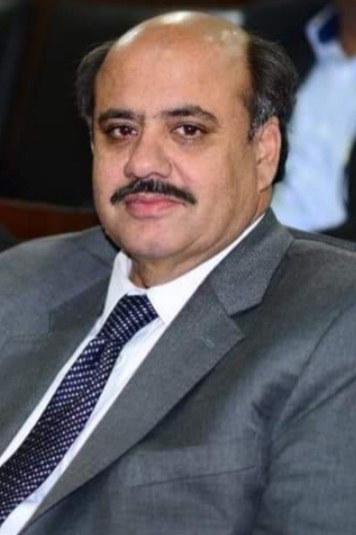The increasing terrorist attacks in Balochistan and Khyber Pakhtunkhwa have terrifying implications in Pakistan. Last week, four terrorist attacks within 24 hours alarmed about the panic-stricken dramatic escalation in militant activities. The surge in terrorist incidents reveals that terrorist groups have started multifaceted cum coordinated attacks on law enforcement agencies and civilians to expose the government’s claim that it ensures a secure environment for foreign investors.
The increasing violence and militancy could spoil the economic management initiatives, delay general elections expected in January 2024, and disrupt religious harmony in the society. Notably, Balochistan, specifically Quetta and Mastung, and Hangu district were in the grip of intense sectarian militancy. Previously, Lashkar-i-Jhangvi (LJ) and presently, Tehreek-i-Taliban Pakistan (TTP) and Islamic State–Khorasan (IS-K or Daesh) are exploiting the sectarian fault lines.

One of the sources of finances for terrorist organizations is the functioning of the illegitimate economic apparatus in the country. Therefore, the current wave of lethal terrorist attacks could dent the government’s recent crackdown against hoarders, smugglers, and drug traffickers.
Reviewing previous terrorist attacks reveals that both TTP and Daesh perpetrated the September 28 and 29 attacks. For instance, Daesh made a suicide attack at a religious political party rally in July, killing 54 people. The involvement of LJ cannot be dismissed entirely in the recent incidents. For instance, in 2006, LJ militants attacked a Milad gathering in Karachi’s Nishtar Park. The linkages between LJ and Daesh are an alarming probability. Hence, the attacks on the religious processions and political rallies scared more bloodshed on the horizon.
The suicide blast near the religious procession on Eid-i-Miladun Nabi in Mastung, Balochistan province, killed 59, including the deputy superintendent of police, and injured dozens of innocent civilians. Notably, Daesh opposes such religious processions. Therefore, it has targeted such processions, undermining Balochistan’s religious tolerance and peace.

Two suicide bombers attacked the Mosque inside the premises of the Doaba police station in KPK’s Hangu district. The courageous, prompt response of the police officers averted the bigger disaster. Despite this, one of the suicide attackers managed to enter the Mosque during the shootout with the police officers guarding the worship place, causing five people killed and 12 injured, including two police officers. According to the police, a suicide attack on the Mosque was carried out by Daesh.
On September 28, four Pakistan Army soldiers were martyred while preventing the TTP terrorists’ infiltration from Afghanistan into Pakistan near Sambaza in district Zhob, Balochistan. A soldier was martyred in another military operation against the TTP in the Kurram and Mardan districts of KPK.

The continuous chaos and instability in Balochistan and KPK could impede the government’s strategy to tap the mineral and mining sectors’ resources to stabilize the current fragile economic situation in the country. Therefore, ‘proxies of enemies’ are conducting terrorist attacks in the regions where foreign investment is expected. Chief of Army Staff General Asim Munir categorically stated: “Such incidents of Terrorism on 12 Rabiul Awwal depict the ill intent of the Khawarij, who has the backing of State Sponsors of Terrorism. These terrorists and their facilitators, having no link with religion and ideology, are proxies of the enemies of Pakistan and its people.”
The geopolitical developments in the neighborhood of Pakistan are creating conditions for violent terrorism in Pakistan. The Taliban government’s supportive approach to TTP facilitates militant network and infrastructure growth in the country and causes cross-border attacks to bleed Pakistanis. India’s domestic situation requires diverting attention towards external enemies to sustain the popularity of the ruling BJP during the forthcoming general elections scheduled in April-May 2024. On September 30, Interim Interior Minister Sarfraz Ahmed Bugti claimed the involvement of the Research and Analysis Wing (RAW) in the recent terror attacks in Balochistan. He said: “Those playing the role of a facilitator, whoever is doing this — be it anyone, whatever you may call it — they all are the same for us, all have the same origins, all are being handled from one place, RAW is behind all them.”

The Pakistani civil and military leadership consensus about India’s financial and material support to the perpetrators of Terrorism in Pakistan increases tension between India and Pakistan. Various factors, including RAW involvement in the murder of a Sikh leader in Canada, testify to Pakistani leadership’s proclamation.
To conclude, Pakistan has struggled to quash the menace of Terrorism through kinetic and non-kinetic means for two decades. Unfortunately, the dividends of the counterterrorism strategy seem inadequate. Therefore, the government must revamp its counterterrorism strategy to address the militancy crisis, exacerbating Pakistan’s economic and political problems.























